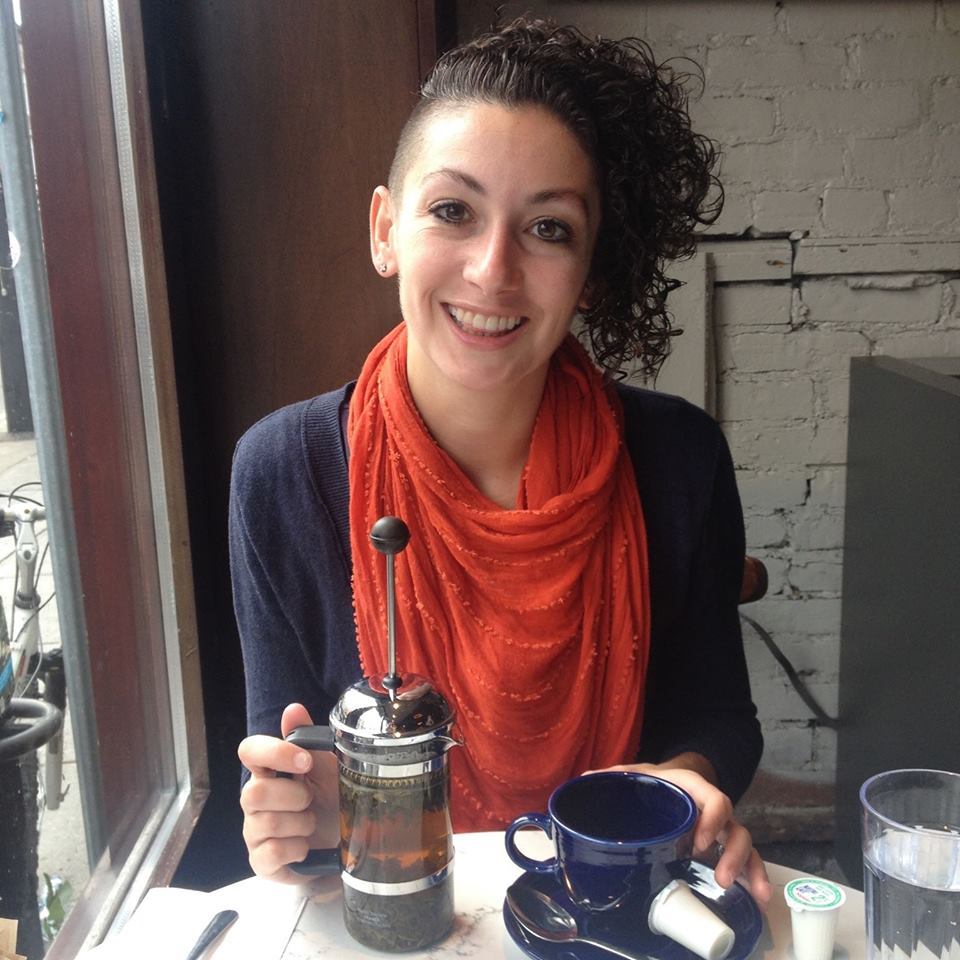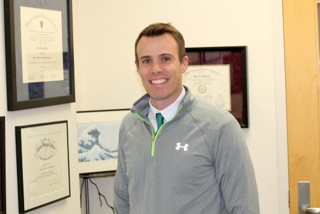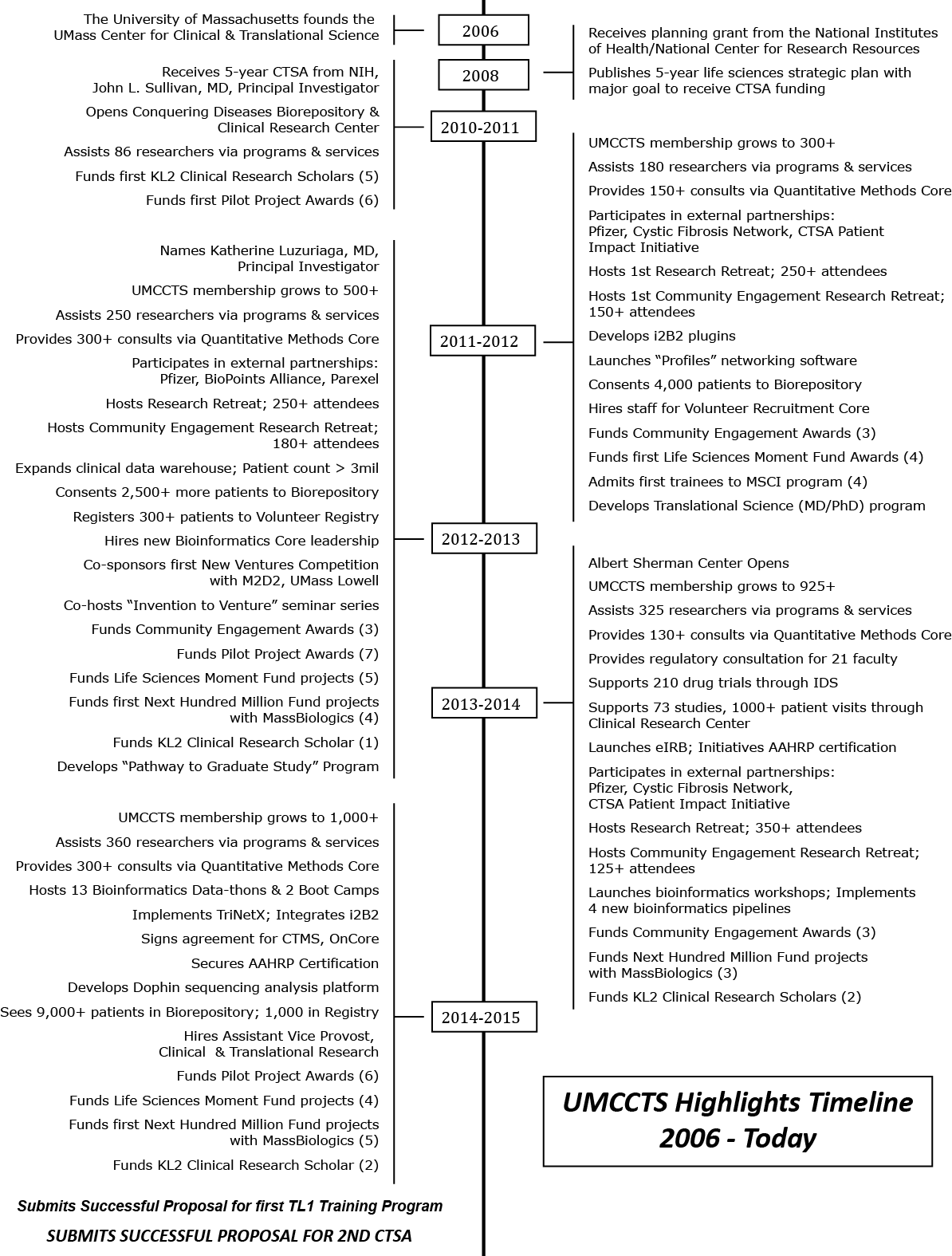Congratulations to Dr. Melissa Anderson
UMCCTS KL2 Clinical Scholars Continue to Excel
 Melissa Anderson, PhD, Postdoctoral Fellow, Instructor in the Department of Psychiatry, and a UMCCTS KL2 Scholar received an R21 grant entitled “Deaf ACCESS: Adapting Consent through Community Engagement and State-of-the-Art Simulation.”
Melissa Anderson, PhD, Postdoctoral Fellow, Instructor in the Department of Psychiatry, and a UMCCTS KL2 Scholar received an R21 grant entitled “Deaf ACCESS: Adapting Consent through Community Engagement and State-of-the-Art Simulation.”
From Dr. Anderson’s narrative:
The U.S. Deaf community – a minority group of 500,000 people who use American Sign Language – is one of the most understudied groups in biomedical research. One reason is the frequent use of research techniques that are not accessible to Deaf people. In response to these issues, we will lead Deaf ACCESS: Adapting Consent through Community Engagement and State-of-the-art Simulation.Collaborating with Deaf community members as part of our research team, we will adapt informed consent procedures to make them more Deaf-friendly, and then use medical simulation to train research assistants how to recruit and enroll Deaf research participants. Our long-term goal is to increase the number of Deaf people who participate in biomedical research studies, and encourage more Deaf people to become actively engaged in the research world.
This project builds on work done in Dr. Anderson’s pilot research, Simulation-based Community-engaged Research Intervention for Informed Consent Protocol Testing and Training.
To learn more about Dr. Anderson’s work, visit the June 2016 issue of “Research in the Works” from the Systems and Psychosocial Advances Research Center (SPARC) which features the “Signs of Safety in English and American Sign Language: A Deaf-Accessible Toolkit for Trauma and Addiction,” and accompanying video. (http://escholarship.umassmed.edu/pib/vol13/iss4/1/)
Congratulations to Dr. Anderson for this career milestone and thank you to Drs. Doug Ziedonis and Sherry Pagoto for their mentorship in the process!
Congratulations to Dr. David McManus
 David McManus, MD, ScM, a 2012 K12 Clinical Research Scholar, recently achieved two milestones in his career. First, he was awarded the Joan and Douglas Zipes Award for the most impactful arrhythmia-related scientific manuscript of 2016 from the Heart Rhythm Society. Second, he was awarded an R01 grant from NIH entitled, "Systematic Assessment of Geriatric Elements in Atrial Fibrillation (SAGE-AF)”. McManus submitted the application with Jane Saczynski, PhD, an Associate Professor from Northeastern University. As his mentor, John Keaney, MD, noted upon hearing the news, “Please join me in congratulating Dave on this landmark in his academic career. It is a terrific reflection on Cardiovascular Medicine and our efforts in developing clinician scientists and translational investigators.”
David McManus, MD, ScM, a 2012 K12 Clinical Research Scholar, recently achieved two milestones in his career. First, he was awarded the Joan and Douglas Zipes Award for the most impactful arrhythmia-related scientific manuscript of 2016 from the Heart Rhythm Society. Second, he was awarded an R01 grant from NIH entitled, "Systematic Assessment of Geriatric Elements in Atrial Fibrillation (SAGE-AF)”. McManus submitted the application with Jane Saczynski, PhD, an Associate Professor from Northeastern University. As his mentor, John Keaney, MD, noted upon hearing the news, “Please join me in congratulating Dave on this landmark in his academic career. It is a terrific reflection on Cardiovascular Medicine and our efforts in developing clinician scientists and translational investigators.”
Training of investigators who will make a career of innovative, hypothesis-driven clinical and translational research is a top priority of the UMCCTS and many resources are available to young investigators including training programs, mentoring, and academic career development. Dr. McManus’ accomplishments highlight the success of these programs.
UMCCTS Team Science Webinar Series Archive
Check out the videos below!
Welcome to the UMass Chan Center for Clinical and Translational Science Team Science Webinar Series. Each webinar focuses on a topic specific to clinical and translational research and includes a 45 minute presentation along with Q/A.
If you are interested in presenting a webinar in the future, please contact ccts@umassmed.edu. We welcome your ideas.
Archived Webinars
January 26, 2016: "Team Science in mHealth Research" (Sherry Pagoto, PhD) and "Team Science in mHealth Research" (Ed Boudreaux, PhD)
(ARCHIVE) Video/Audio presentation
February 22, 2016: "Myths and Realities of Mentoring" (Robert Milner, PhD)
(ARCHIVE) Video/Audio presentation
March 24, 2016: "Enhancing the Effectiveness of Team Science" (Nancy J. Cooke, PhD)
(ARCHIVE) Video/Audio presentation
April 28, 2016: "The Center for Microbiome Research and Our Approach to Team Science" (Beth A. McCormick, PhD and joined by, Doyle Ward, PhD and Jeffrey Blanchard, PhD)
(ARCHIVE) Video/Audio presentation
May 11, 2016: "Transdisciplinary, Translational Team Science: What is the Optimal Role for Nurse Scientists?" (Laura L. Hayman, PhD)
(ARCHIVE) Video/Audio presentation
August 29, 2016: "Translating Basic Discoveries into Applied Technologies and Product Candidates at the Institute for Applied Life Sciences" (Peter Reinhart, PhD)
(ARCHIVE) Video/Audio presentation
September 22, 2016: "Academic Recognition in the New World of Team Science" (Robert Milner, PhD and Luanne E. Thorndyke, MD)
(ARCHIVE) Video/Audio presentation
Looking Back, Looking Ahead
A Timeline of the UMCCTS
Date Posted: Tuesday, January 12, 2016In putting the finishing touches on our Final Progress Report to NIH for the first 5-year CTSA, I created a timeline of some of the highlights of the past 9 years. Since its founding in 2006, the UMass Chan Center for Clinical and Translational Science (UMCCTS) has made great strides in becoming the central resource hub for clinical and translational research at UMass Chan Medical School, as well as our 4 sister campuses (UMass Amherst, Boston, Dartmouth and Lowell). Seeing all that we’ve accomplished to date, one cannot help but look forward with great anticipation to all that’s in store as we move into our second Award period. Take a moment to see where we’ve been and then just imagine what the future holds.

Why (and How) Scientists Engage with the Public
An interesting article in the February issue of PLOS One, Scientists’ Prioritization of Communication Objectives for Public Engagement (Dudo & Besley), sheds light on a topic that’s been of much discussion in the scientific community for awhile now, i.e. the importance of scientists talking about their work with the public. Most often it’s cited that public engagement is important to insure public support, financial and otherwise, for scientific research. The argument goes that an informed public will be a supportive public, demanding that the government and private funding agencies adequately provide for science. Thus, researchers’ objectives and priorities when speaking to the public tend to be on informing, educating, and defending science. Indeed, this tendency and belief was evident in the findings of Dudo & Besley’s study.
More importantly, however, was the finding of what scientists believe is less important when engaging the public – building trust. “This is a problem because, as noted, past communication research has made a clear case showing that attitudes related to trust are correlates of positive reviews about science,” (p. 13) among other things. In short, researchers prioritize least the objective that may well matter most when speaking to the public. Dialogue – speaking and listening – appears key for effective communication and, ultimately, developing an informed and supportive public. “Communication scholars now emphasize that positive beliefs about science and scientists are more likely to stem from high quality interactions with likable and engaging scientists who are willing to listen.” (p.2)
Like any other skill within one’s research toolkit, effective communication can and needs to be honed. For UMCCTS researchers looking for help and opportunities to better their communication skills and talk with the public, resources are available via the UMass Chan Center for Biomedical Career Development. You may also wish to become involved with Science Café Woo, a monthly forum in Worcester where local scientists are invited to talk about their work with the public, as well as engage in lively discussion.
(You can find a nice synopsis of the referenced article by Matt Shipman, science writer and communication officer at North Carolina State University on SciLogs.)
